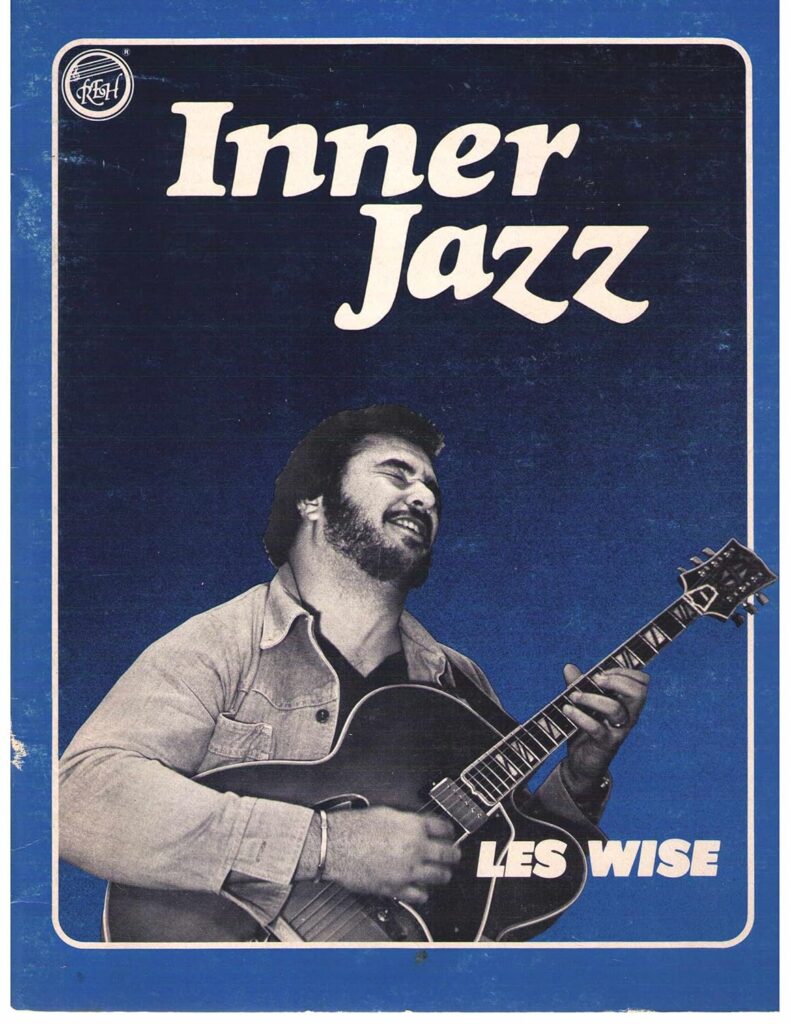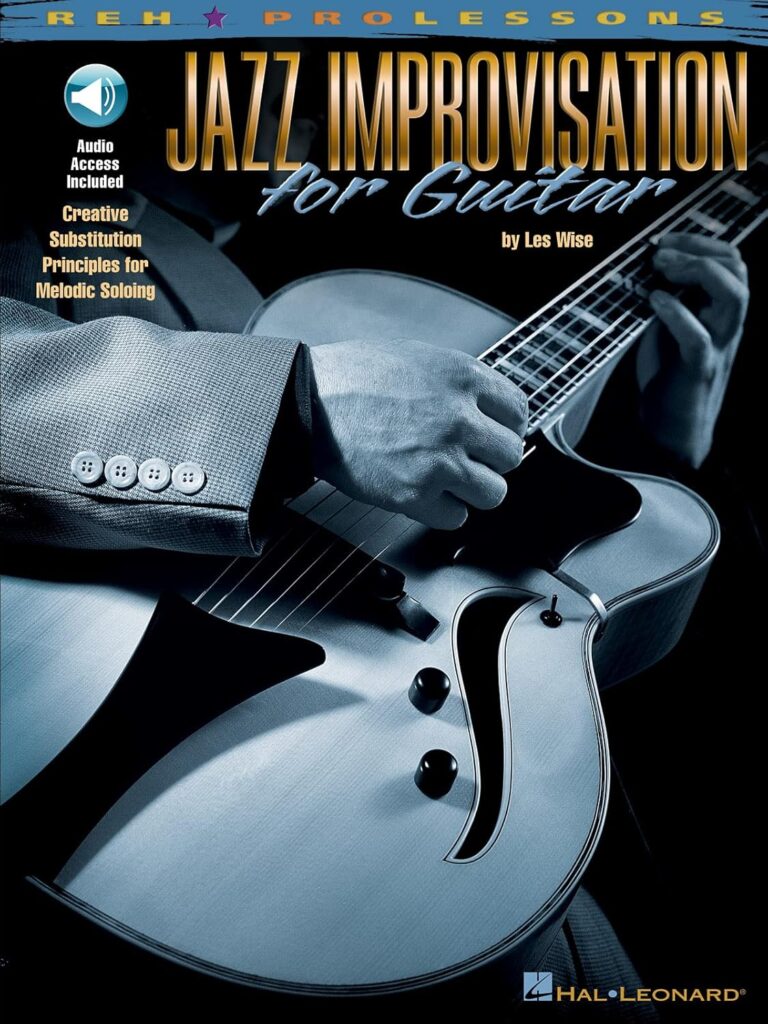
This is an older version of a book currently called Jazz Improvisation by Les Wise.
Essentially the content is the same, but in the older REH version with this title and cover, no tabs are included and instead a fretboard diagram format with number notating the order of notes played on the fretboard are included. It’s a different notation format that accompanies the standard notation that was used in these early REH books.
Now what is this book about?
It’s basically a book that teaches substitutions you can use to create melodic jazz improvisation.
What makes it different or special?
Les Wise wrote it. He was one of the early guitar instructors at Guitar Institute of Technology (GIT), and started teaching there in 1978. The lines in this book sound good.
Is it worth getting an older edition of the book (the one with this title), compared to the currently available one?
It depends. The lines are basically the same, it’s only the presentation which is slightly different. If you’re a book geek who likes older editions of books, then you can try finding this one. Otherwise just get the new edition with the new title.
It will look like this:

Some copies of the book will have an accompanying CD. The new ones will have audio access included which means you get online audio access. The new edition has 34 pages of material. The older version I have is 40 pages long because the fretboard diagrams used in the older version takes more space in the book.
The book contains a variety of jazz lines that start out with natural tensions on the dominant chords and end up with all sorts of different sounds, especially by the time we use melodic minor and harmonic minor ideas.
The strength of the book to me is the fact that Les Wise keeps the material as simple as possible. There’s a kind of elegance in the way he explains everything, which is nice.
In conclusion, if you are interested in jazz guitar improvisation and you want to get some new melodic ideas, this book might be the boost you need. Check it out!
Pros: Great book with great lines, good substitutions and well explained.
Cons: None.
TLDR: Want to learn some jazz guitar soloing concepts and substitutions? Need some jazz licks? Check out this book for some new ideas.
Get your copy of the book from Amazon or you can also try your favorite online music store or bookstore.
Also, if you’re curious about Les Wise and his other works, check out my review of his course here:
Course Review: Fretboard Freedom Fighter by Les Wise
[Review Archive]
I wrote a lot of other book, course and video reviews too.
Check out the rest here:
[Read more reviews]
[Submissions for Review Consideration]
- Are you an author who wrote a jazz, guitar or music book?
- Have you created a DVD or an online video course or subscription based website?
- Would you like me to review your book/course?
Please send me a message at azsamad3 at gmail.com with:
For courses: a link to the course/video/product + access info etc.
For books: a link to the book (Dropbox) or PDF attachment (if it’s small) for review consideration.
Depending on whether I dig the book/course, I’ll let you know if I do plan to review it!
I cannot guarantee a review for every submission & if I’m not too into it, I may opt not to review it. I mean, it’s better to get a good review that for me to write a bad review just because it’s not a match for the kind of stuff I dig right? :p
NOTE: All reviews reflect my honest personal opinion so be aware that I will point out both cool Pros and Cons that I see in the work. You dig?